2019 September
Choose another year
Choose another year

The upcoming elections for the 22nd Knesset were called under unprecedented circumstances: the previous Knesset (21st) , elected on April 9th , decided less than two months later on its early disbanding after Prime Minister Benjamin Netanyahu's failed to form a government. This is the first time in Israel’s history that two elections will be held in the same year, and for the tenth consecutive time Israel is holding early national elections. They will be held in the shadow of Attorney General Mandelblit’s announcement of his intent to indict Prime Minister Benjamin Netanyahu, pending a hearing, at the height of the previous election campaign.
After surviving several coalition crises, Prime Minister Benjamin Netanyahu's fourth government (in office since May 2015) disbanded in December of 2018. The formal explanation for the early Knesset dissolution was the governing coalition's inability to obtain a majority to push forward legislation that would authorize a proposed solution for the never-ending issue of ultra-Orthodox military service. This was also the reason behind the failure of the coalition talks after the elections: Lieberman opposed any compromise regarding the draft law. The Dispersion Law: The 21st Knesset, passed on May 29th and new elections will be held on September 17, 2019.
17.9.2019
6,394,030
3.25%
4,465,168
4,436,806
69.8%
| Party | Votes Count | Number Of Seats | Share Of Votes | List Of Candidates | Platform |
|---|---|---|---|---|---|
| Blue and White | 1,151,214 | 33 | 25.9 |
Candidates
|
Platform
|
| Likud | 1,113,617 | 32 | 25.1 |
Candidates
|
|
| The Joint List | 470,211 | 13 | 10.6 |
Candidates
|
|
| Shas | 330,199 | 9 | 7.4 |
Candidates
|
|
| Yisrael Beitenu | 310,154 | 8 | 7.0 |
Candidates
|
Platform
|
| United Torah Judaism | 268,775 | 7 | 6.1 |
Candidates
|
|
| Yamina | 260,655 | 7 | 5.9 |
Candidates
|
|
| Labor-Gesher | 212,782 | 6 | 4.8 |
Candidates
|
|
| Democratic Union | 192,495 | 5 | 4.3 |
Candidates
|
|
| Otzma Yehudit | 83,609 | - | 1.9 |
Candidates
|
Platform
|
| Tzomet | 14,805 | - | 0.3 |
Candidates
|
|
| Ha'Achdut Ha'Amamit | 5,946 | - | 0.1 |
Candidates
|
|
| Red and White | 4,358 | - | 0.1 |
Candidates
|
|
| Justice | 3,053 | - | 0.1 |
Candidates
|
|
| The Secular Right | 2,395 | - | 0.1 |
Candidates
|
|
| Kavod Veshivyon | 1,545 | - | 0.0 |
Candidates
|
|
| Zkhuyotenu Bekolenu | 1,473 | - | 0.0 |
Candidates
|
|
| The Pirates | 1,236 | - | 0.0 |
Candidates
|
|
| Otzma Kalkalit | 1,193 | - | 0.0 |
Candidates
|
|
| Mitkademet | 1,033 | - | 0.0 |
Candidates
|
|
| Kama | 994 | - | 0.0 |
Candidates
|
|
| New Order | 928 | - | 0.0 |
Candidates
|
|
| Tzafon | 725 | - | 0.0 |
Candidates
|
|
| Democratura Party | 736 | - | 0.0 |
Candidates
|
|
| Christian Liberal Movement | 610 | - | 0.0 |
Candidates
|
|
| Da'am | 592 | - | 0.0 |
Candidates
|
|
| Kvod HaAdam | 542 | - | 0.0 |
Candidates
|
|
| Biblical Bloc Party | 497 | - | 0.0 |
Candidates
|
|
| Manhigut Chevratit | 434 | - | 0.0 |
Candidates
|
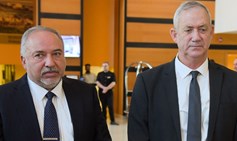
Written By: Prof. Ofer Kenig, Dr. Assaf Shapira
Tomorrow, Gantz's mandate to form a government will end, and we are expected to enter an unparalleled stage in Israel - 21 days, during which a majority of Knesset members, at least 61, are allowed to ask the president to assign the mandate to anyone of the 120 MKs.
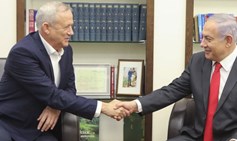
Written By: Prof. Tamar Hermann, Dr. Or Anabi
October 2019 Israeli Voice Index revealed a decline in Israelis’ assessment of President Trump’s commitment to Israel’s security. The survey also found that 62% of Israelis support the parties they voted for in the last elections joining a Blue and White led coalition.

Written By: Yohanan Plesner
While we cannot know for sure if Benny Gantz will succeed where Benjamin Netanyahu has failed, we can state with certainty that our political system of the past year has been characterized by deadlock, and this is not expected to end in the near future.
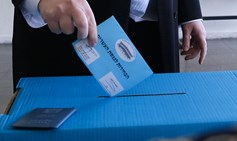
Written By: Dr. William Cubbison
The failure to form a government in April and the subsequent second election surprised Israelis. Now, they might need to go to the polls for a third election in early 2020. What do Israelis think about this unprecedented political reality?

Written By: Prof. Tamar Hermann, Dr. Or Anabi
September 2019 Israeli Voice Index found that a majority of Israelis prefer a unity government. Additionally the majority of Israelis do not think the State should offer Benjamin Netanyahu a plea bargain or that he would agree to one.
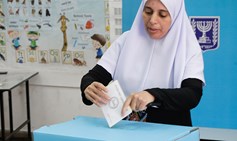
Written By: Dr. Arik Rudnitzky
The overwhelming majority of Arab voters (81.8%) cast their ballots for the Joint List, which won 13 Knesset seats and reproduced its historic achievement of 2015. By contrast, there was a significant drop in voting for Jewish parties. Only Blue-White won respectable support in Arab localities—the equivalent of one Knesset seat, making it the leading Jewish party in the Arab sector.

Written By: Prof. Ofer Kenig
The strangest and most polarizing election in Israel’s history is now over. The people have spoken, and we’re now entering the next stage of the political lifecycle: forming a new government. What are the rules governing this process, and what can be learned from a historical and comparative perspective?
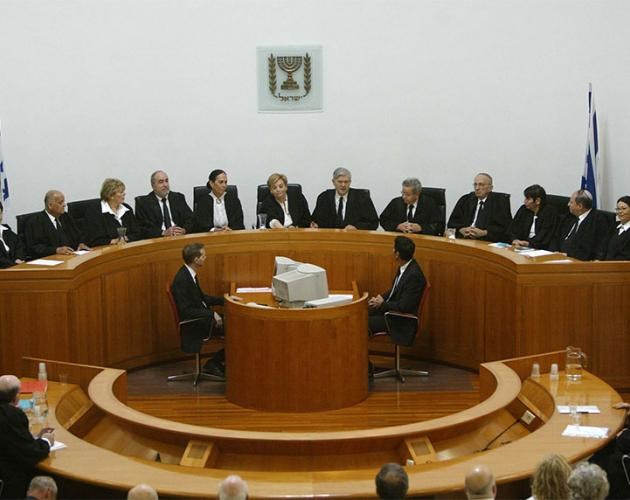
Written By: Yohanan Plesner
"This election will be less about which candidate ends up as prime minister, but rather the real possibility of radical judicial reforms that might soon pass in the Knesset and which would limit the Supreme Court’s ability to perform crucial oversight over the political system."
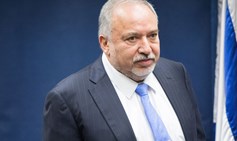
Written By: Prof. Tamar Hermann, Dr. Or Anabi
The August 2019 Israeli Voice Index found that Jewish Israelis show a strong preference for a unity government while Arab Israelis prefer a center-left wing government led by Gantz and that over the past five months there has been a steady decline in the public’s optimism about the future of Israel’s democracy and security

Written By: Prof. Tamar Hermann, Dr. Or Anabi
This special survey examines attitudes of right wing voters on a number of issues related to September's election including the possibility of a unity government and recent proposals that would limit judicial review and oversight of Knesset and government decisions.
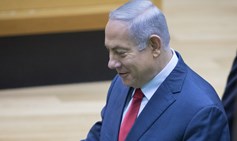
Written By: Prof. Tamar Hermann, Dr. Or Anabi
Prime Minister Benjamin Netanyahu is awarded high grades for improving Israel’s international standing (60%), enhancing the country's military strength (56%), and successfully contending with the Iranian threat (50.5%) but poor grades for failing to increase solidarity between Israel's different segments of society (51%) and on the question of personal integrity (49%).
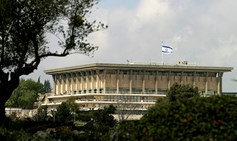
Written By: Prof. Yuval Shany, Dr. Amir Fuchs, Dr. Guy Lurie, Prof. Ofer Kenig
An opinion submitted today (June 26th) to MKs, the Attorney General, and the Knesset Legal Advisor on behalf of the Israel Democracy Institute, opposes the proposal to repeal the law to dissolve the Knesset and seeks to take the proposal off the agenda.
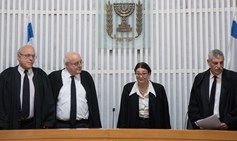
Written By: Dr. Amir Fuchs
The bizarre constitutional situation in which we now find ourselves raises a great many legal questions, not all of which have simple answers. Does the law allow the prime minister to fire all the government’s ministers? Can he serve as “the government” by himself?
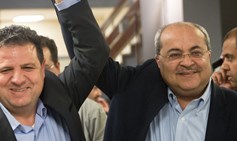
Written By: Dr. Arik Rudnitzky
Will Arab politicians take advantage of the second chance that the new elections have presented? Runing in a Joint List and reaching out to their younger voters - 60% of which didn't vote in the last election, would be the right place to start.

Written By: Prof. Tamar Hermann, Dr. Or Anabi
On the eve of Israel’s 71st Independence Day, 82% of the Israeli public thinks that the national balance of achievements shows more successes than failures and 62% think legal proceedings against Prime Minister Netanyahu should not be stopped, notwithstanding his success in the elections

Written By: Yohanan Plesner
The proposed draft law perpetuates inequality and is dangerous to Israel’s long term security. If drastic changes are not made to encourage the ultra-Orthodox to serve in the military, it may increase inequality among young people in Israel threaten the IDF as the people's army, in which the burden to serve in the military is shared

Written By: Dr. Chen Friedberg, Avital Friedman, Niv Shoval
The current paper presents data on the parliamentary work of the MKs and parties in the outgoing Knesset. All the information is based on data taken from the Knesset archives and the Knesset’s Research and Information Center which are open to the public

Written By: Prof. Ofer Kenig
The 2019 election results mark the return of Israeli politics to two large lists. Voter turnout declined, as the parliamentary fragmentation. The impressing increase in female representation was halted, and the number of ex-generals will be the highest in decades. An initial analysis of the election results.

Written By: Prof. Gideon Rahat
In Israel, people vote for a party rather than a candidate. But over the years, there has been a shift towards the personalization of politics. Why have our elections become a competition among single personalities rather than a confrontation among different parties and ideas? Prof. Gideon Rahat offers his take
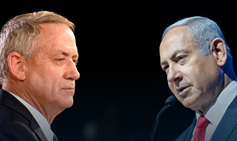
Written By: Prof. Tamar Hermann, Dr. Or Anabi
66.5% of the Jewish public thinks that Israel is too lenient in dealing with the clashes on the Gaza border. Only 38.5 of the Israeli public believe Prime Minister Netanyahu’s statement that he “didn’t get a shekel from the submarine deal”, 52% of the Israeli public trusts election surveys and 27.5% does not trust the integrity of the Knesset elections
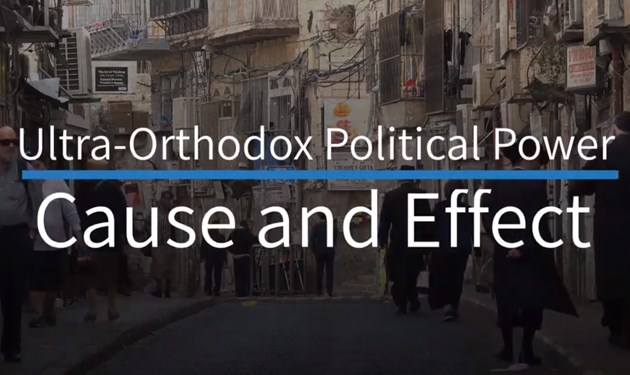
Written By: Dr. Gilad Malach
For many years the ultra-Orthodox were perceived as “captive voters” who would always comply with their rabbis’ instructions to cast their ballot for ultra-Orthodox parties. In today’s new reality such directives are no longer enough

Written By: Dr. Tehilla Shwartz Altshuler
How should media outlets in Israel prepare themselves for “fake news” campaigns and how has the digital sphere become the “Wild West?” Tipping Point hosts Dr. Tehilla Shwartz Altshuler to discuss the extent Israeli elections are influenced by digital campaigns
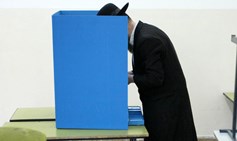
Written By: Dr. Gilad Malach
Gilad Malach of the Israel Democracy Institute gives the latest electoral trends among Israel’s insular ultra-orthodox Jewish community. Why is a small community so divided, and why are growing numbers of ultra-Orthodox voters leaving the Haredi parties altogether?
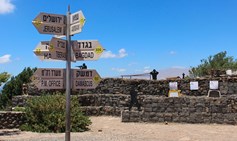
Written By: Dr. William Cubbison
Due to security concerns - the majority of Israelis, over the past four decades have consistently opposed the idea of returning the Golan Heights to Syrian control. The article presents a historical overview of Israeli public opinion
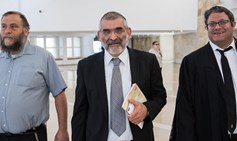
Written By: Dr. Shuki Friedman
The merger between the Jewish Home party and Otzma LeYisrael marks the end of an era. Since the founding of the State of Israel, the prominent Religious-Zionist parties have played a central role – yet they have now joined forces with the dangerous fringes on the extreme right

Written By: Dr. Tehilla Shwartz Altshuler
When we struggle during election campaigns to enforce a rule against use of private data and building profiles of users in order to target them with personalized messages, we are essentially fighting for the rights of the community of older voters
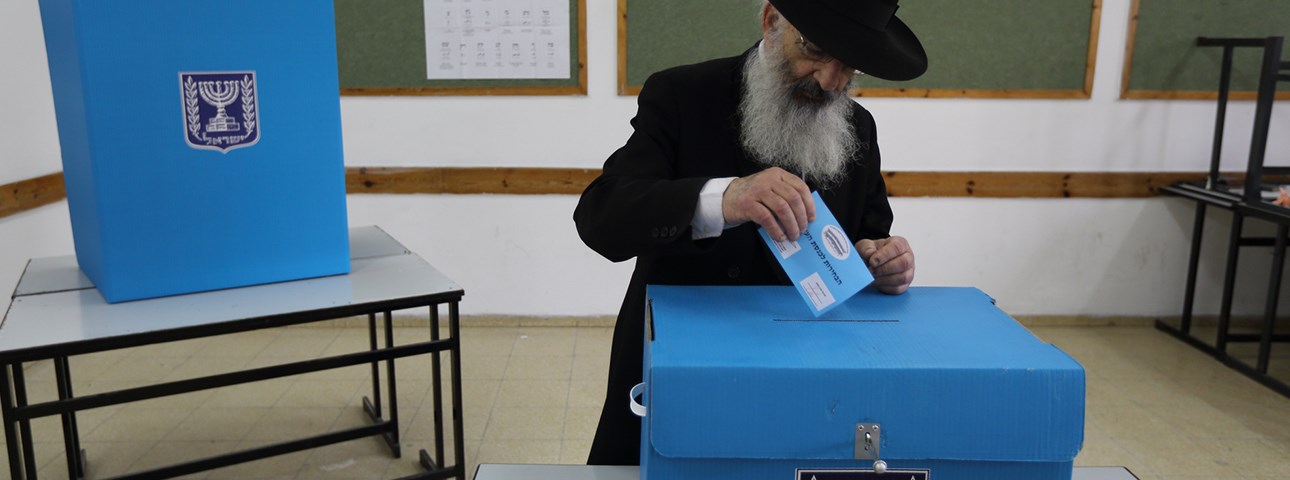
Written By: Dr. Gilad Malach
In a conversation with Fathom Deputy Editor Calev Ben-Dor, Malach discusses the recent changes that have taken place in ultra-Orthodox society, voting trends within the ‘sector’, and how the onset of technology is affecting voting patterns

Written By: Adv. Eli Bahar, Adv. Ron Shamir
Iran has apparently hacked the cellphone of Benny Gantz, Prime Minister Netanyahu's main challenger in the April 9 elections. But despite serving as a tool in Likud's campaign, it has not derailed the democratic process in any significant way. In this conversation Eli Bahar, former legal adviser to Shin Bet and IDI fellow, and Ron Shamir, the former head of the technology division at Shin Bet and a fellow at the Hebrew University's Federman Cybersecurity Center, discuss with Tel Aviv Review's Gilad Halpern the danger posed by potential cyber-attacks on Israeli democracy

Written By: Prof. Yedidia Z. Stern
Instead of training rhetorical cannons on the court, which is doing its job in a chaotic situation, the legislature should delete Section 7A from the Basic Law. Let everyone run for the Knesset, and let those who violate criminal laws bear the consequences of their actions

Written By: Adv. Eli Bahar, Ron Shamir
Eli Bahar and Ron Shamir examine the threats posed by foreign intervention (in its broadest sense) in Israel’s Knesset elections—by means of Cyber-attacks, whether at the state or sub-state level
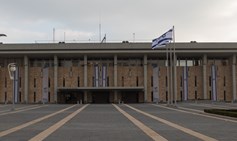
Written By: Yohanan Plesner
Why doesn't the government take more initiative towards peace? Why is there no egalitarian prayer space at the Western Wall? How come the ultra-Orthodox don't serve in the military? The common denominator to all these issues is that they all stem from a structural flaw in our electoral system, which allows vocal minorities to hold the national interest hostage to their concerns and interests
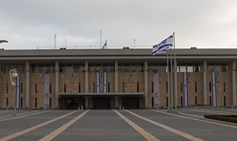
Written By: Yohanan Plesner
Will Israel's democratic institutions prove resilient? How is the party system changing and is Israel headed for a tyranny of the majority? Yohanan Plesner, President of the Israel Democracy Institute, examines the ramifications of the unprecedented indictment of an incumbent Prime Minister in Israel

Written By: Dr. Tehilla Shwartz Altshuler
The essence of breach of trust is a conflict of interests in which decision-makers may find themselves when dealing with public matters. And we should pause to consider this conflict of interest, on the public level no less than on the criminal level
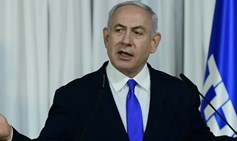
Written By: Prof. Yedidia Z. Stern
While the final decision about an indictment will not be made until after a hearing, with the publication of the draft indictment, the Prime Minister must decide whether he will launch a public campaign under the reverse heading: “Benjamin Netanyahu vs. the State of Israel"
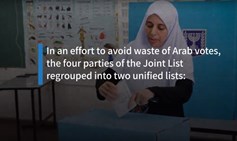
Written By: Dr. Arik Rudnitzky
The fifth in a series of articles and videos prepared by the Israel Democracy Institute in the run-up to April 9, explaining and critiquing what goes on during an election period
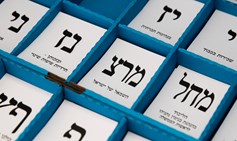
Written By: Prof. Tamar Hermann, Dr. Or Anabi
Exclusive Pre-Elections survey by the Guttman Center at the Israel Democracy Institute finds that half of Israelis find it harder than in the past to decide whom to vote for; 25% base their choice on the party’s positions on socioeconomic issues and 18% on who heads the party; 27% do not trust the integrity of the Knesset elections

Written By: Yohanan Plesner
In an op-ed published in the Washington Post, Yohanan Plesner assures readers that, "Supporters of Israel's democracy at home and abroad should know that so far the checks and balances built into our young democracy are holding up in the face of serious pressures."
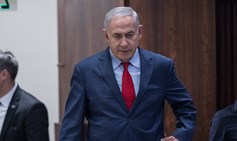
Written By: Yohanan Plesner , Prof. Yuval Shany
Yohanan Plesner, President of the Israel Democracy Institute, and Prof. Yuval Shany, Vice President of Research "No democracy can tolerate public corruption or any exception to the principle of equality before the law."
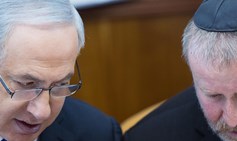
Written By: Dr. Guy Lurie
As the Israeli attorney-general is expected to announce his decision regarding the possible indictment of Prime Minister Netanyahu on corruption charges, Tipping Point hosts two leading experts for a discussion on the legal and political ramifications. Dr. Guy Lurie (Israel Democracy Institute) and Dr. Emmanuel Navon (Kohelet Policy Forum) try to make sense of what’s about to come

Written By: Dr. Tehilla Shwartz Altshuler
It is difficult to identify them - they are hidden, disguised, sophisticated and resonate to us what our immediate surroundings think. During the election campaign they are at their peak - bots, fake accounts, unnamed identifiers - all trying to influence public opinion. We bring to you 5 tips for managing smart online presence

Written By: Yohanan Plesner
Following the merger between Yesh Atid and the Israel Resilience Party, April’s elections will feature real competition between two major blocs. The next step in minimizing fragmentation in the Israeli political system is reforming the method by which a government is formed. The head of the largest party should automatically be appointed to form the next government.
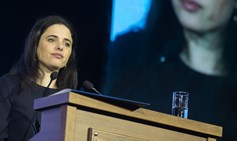
Written By: Prof. Ofer Kenig
In February 1969, Golda Meir was appointed fourth prime minister of the State of Israel. Despite this achievement, the inclusion of women in Israel’s cabinets is far from impressive. Dr. Ofer Kenig explains that after 70 years of independence, the time has come for Israel’s governments to strive for true equality and reflect greater gender balance.

Written By: Dr. Gilad Malach
What is the secret behind the power of the ultra-Orthodox political parties in Israel and how has it changed over the years? The article presents an overview of the development of the ultra-Orthodox political parties in Israel from the establishment of the State as well as insights as to future developments.
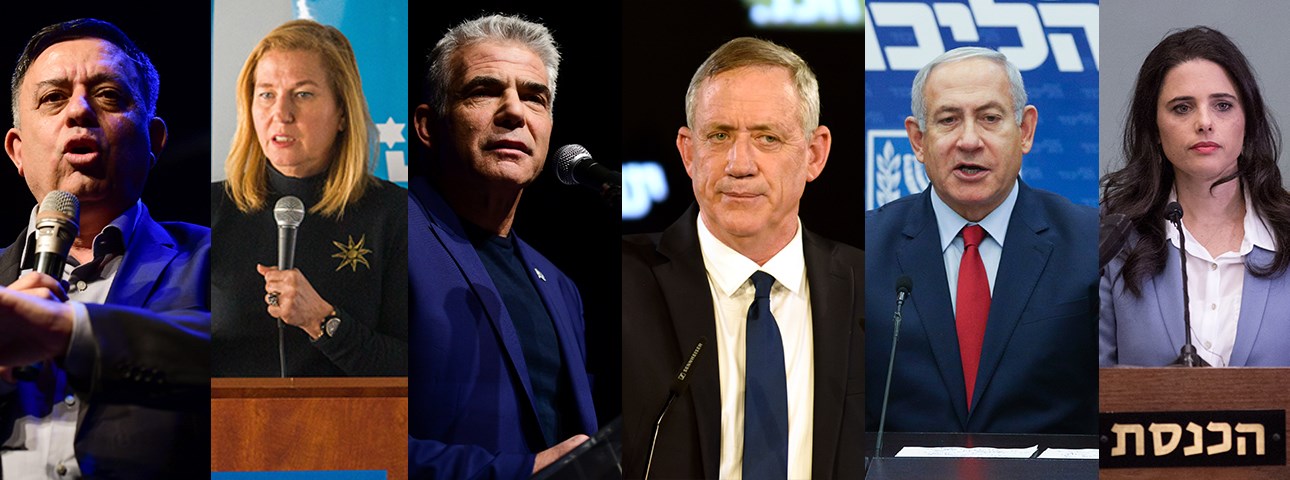
Written By: Prof. Tamar Hermann, Dr. Or Anabi
The Jewish public is divided over the question whether the prime minister should resign if indicted by the Attorney General, pending a hearing; 52% of the Jewish public believes that Israelis living abroad should also have the right to vote

Written By: Prof. Gideon Rahat
“The current system grants small parties disproportionate power, leads to excessive preoccupation with coalition management, does not provide strong incentives for creating an effective opposition, and leads to the allocation of over-sized budgets to sectoral interests. We need to create a system of incentives which will solidify the political system into two main blocs.” says Prof. Gideon Rahat

Written By: Dr. Amir Fuchs
The 20th Knesset was the most injurious of all with regard to democratic values, freedom of expression, gatekeeping and, above all, minority rights. In the next government we can only hope that someone will champion liberal center-right values to continue to protect our democracy.

Written By: Prof. Gideon Rahat
As Israeli political parties begin to formulate their lists of candidates for the upcoming election, Tipping Point hosts Prof. Gideon Rahat, (Israel Democracy Institute), and Dr. Emmanuel Navon (Kohelet Policy Forum) for a conversation on the pros and cons of the primary system.
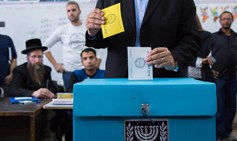
Written By: Prof. Gideon Rahat
It is commonly accepted that in order to defeat Netanyahu, the political parties in the center and on the Left must unite and present a single and clear alternative. However, under the current system, this claim is simply not true.

Written By: Prof. Gideon Rahat
How will yesterday's announcement impact the elections? Will Bennet and Shaked take votes from the right and will their gamble pay off? Listen to Prof. Gideon Rahat talk to The Israel Project on the fragmentation of the Israeli political system.
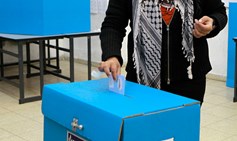
Written By: Prof. Yuval Shany
One of the main explanations for the dramatic decline in voter turnout in the Arab Israeli sector in the last elections (49%, versus 63% in the 2015 elections) is the sense that the voice of Israeli Arabs — is a voice that doesn’t count.

Written By: Dr. Arik Rudnitzky
The real story of the April 2019 elections took place outside the polling booth. In the Arab sector, the Movement to Boycott the Knesset Elections, a grassroots group based on Arab young adults and university students, working on the social networks with a shoestring budget, conducted an effective campaign with a simple and catchy slogan: “Boycott: The People’s Will.” This message stood in utter contradiction to the motto of the elections in 2015: “The Joint List: The People’s Will.”